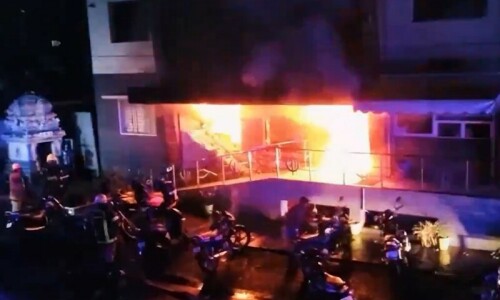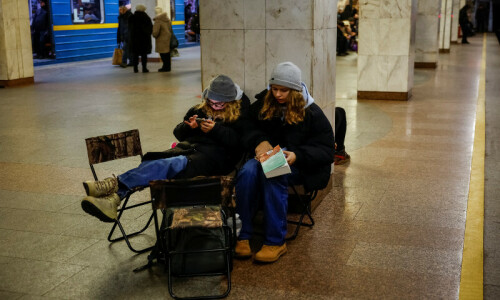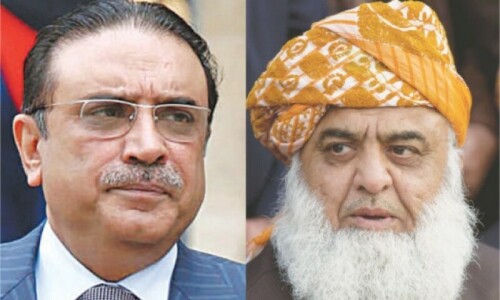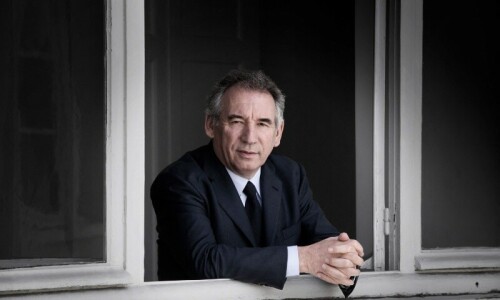
VINEYARD HAVEN, Massachusetts: US President Barack Obama said as momentous scenes unfolded in Tripoli that Moamer Qadhafi's regime had reached a “tipping point” and the Libyan “tyrant” must leave now to avoid further bloodshed.
In a written statement late Sunday, Obama also looked to the post-Qadhafi era, calling on Libyan rebels who have surged into Tripoli to respect human rights.
He called on opposition forces to show leadership, preserve the institutions of the Libyan state and move towards democracy.
“Tonight, the momentum against the Qadhafi regime has reached a tipping point. Tripoli is slipping from the grasp of a tyrant,” Obama said in a statement issued as he took a vacation on the resort of Martha's Vineyard.
“The Qadhafi regime is showing signs of collapsing. The people of Libya are showing that the universal pursuit of dignity and freedom is far stronger than the iron fist of a dictator.”
Obama said the surest way for bloodshed to end in Libya was simple: “Moamer Qadhafi and his regime need to recognize that their rule has come to an end.” Qadhafi needs to acknowledge the reality that he no longer controls Libya.
He needs to relinquish power once and for all.” Obama also noted that the United States has recognized the opposition Transitional National Council as Libya's legitimate governing authority.
“At this pivotal and historic time, the TNC should continue to demonstrate the leadership that is necessary to steer the country through a transition by respecting the rights of the people of Libya.” He called on the rebels to avoid civilian casualties, protect the institutions of the Libyan state, and pursue a transition to democracy that is “just and inclusive for all of the people of Libya.”
In Washington, more than 100 people gathered in front of the White House, chanting: “USA, USA - Qadhafi has gone today” or “Qadhafi left Tripoli, Libya is free”.
The whereabouts of the Libyan leader, who has ruled for over four decades, were unclear however.
Obama, who is trying to ride out one of the toughest patches of his presidency, has faced stern criticism in the United States about his handling of the Libya crisis.
Initially, he committed the full force of US firepower to the conflict, on the basis of a UN resolution authorizing the protection of civilians.
But the US leader, wary of miring US forces in a third war in a Muslim nation, made clear that America's Nato allies like France and Britain would conduct most of the frontline conflict, though US forces took a support role.
There was also an intense debate in Washington about whether Obama had sufficient constitutional authority to commit US forces to the war without the prior authorization of Congress.
Other more hawkish commentators faulted the president for not sufficiently deploying US power, especially after an anonymous official was quoted by the New Yorker magazine as saying the administration was “leading from behind.”
But The New York Times reported Monday that intensified US aerial activity in and around Tripoli may have helped tilt the balance of power toward rebels seeking to oust Qadhafi.
Citing unnamed officials, the newspaper said that in recent days, the United States established around-the-clock surveillance over the dwindling areas that Libyan military forces still controlled, using armed Predator drones to detect, track and occasionally fire at those forces.













































Dear visitor, the comments section is undergoing an overhaul and will return soon.